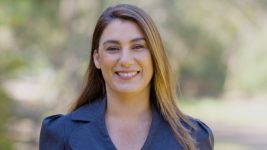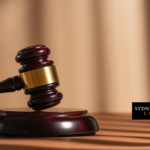Clan-Based Treaties: An Interview with MP Lidia Thorpe

The Victorian electorate of Northcote had been a Labor stronghold for 90 years. But the November 18 by-election in the inner city district revealed that the local constituents in Melbourne’s north were looking for a more progressive representative. And the Greens took out the seat.
The candidate who led the party across the line was Lidia Thorpe. She’s a Gunnai-Gunditjmara woman living on Wurundjeri country. And since she was sworn in on Tuesday, she’s been the first Aboriginal woman MP in the Victorian state parliament.
Ms Thorpe has been actively involved in politics from a young age. She’s been advocating for the rights of her people, as well as being involved in environmental campaigns, such as saving the Nowa Nowa Gorge in East Gippsland. And these issues will be central to the role she plays in state politics.
The political climate
Right now, in Victoria, as in the rest of the country, there is an affordable housing crisis taking place.
The Andrews government has plans to sell off public housing land, so that 80 percent of it can be turned into private rental accommodation, in exchange for a 10 percent increase in community housing.
But, Ms Thorpe has other ideas, with a focus primarily on saving public housing.
The Northcote district local also aims to open up the conversation around January 26, which has already caused controversy in the region.
Northcote lies within the City of Darebin local council area. In August, Darebin became the second Melbourne council to vote in favour of holding its citizenship ceremony on another day. The Turnbull government’s response was to strip the council’s power to hold the ceremony.
And with the outcry that followed Triple J’s announcement that it’s moving its Hottest 100 Countdown to a more inclusive day, it’s clear that many in the community aren’t quite aware that January 26 marks a day of mourning for Aboriginal and Torres Strait Islander people.
Treaty now
Ms Thorpe was amongst a group of delegates that walked out of the Uluru Summit back in May. The group stated that the Referendum Council’s meeting on constitutional recognition was a flawed process and their voices weren’t being heard.
The council voted against constitutional recognition. It recommended establishing a constitutionally-enshrined Indigenous body to advise parliament. The prime minister rejected this proposal outright in late October.
However, Ms Thorpe doesn’t support the council’s constitutional reform proposal. Outside the summit she declared, “We demand a sovereign treaty with an independent sovereign treaty commission, and appropriate funds allocated.”
And she further suggested that treaty negotiations follow the Vienna Convention on the Law of Treaties.
Sydney Criminal Lawyers® spoke with Greens MP Lidia Thorpe about why her campaign broke the Labor hold in Northcote, her proposal for alleviating the affordable housing crisis, and what form a treaty should take.
Firstly, Lidia, congratulations on your win.
Thank you very much.
So, what did you as a Greens candidate offer local constituents that enabled you to take out the seat in the former Labor stronghold?
We had such a grassroots campaign. We had hundreds and hundreds of volunteers come out, knock on doors, and stand at schools. We just had such an amazing turnout of Greens volunteers that it gave people an opportunity to talk about what was important to them.
Also, having someone that was connected in the community. Someone who has lived experiences of a lot of the things that people care about: the environment, social justice. My journey in that space gave me some credibility with the voters.
And I was out there knocking on doors and making myself available to everybody throughout the campaign.
Ultimately, it was a grassroots campaign, and a lot of people came out to support it.
You oppose the Andrews government’s public housing sell off proposal. What sort of alternative would you propose to help solve the housing crisis in Victoria?
We can’t afford to be selling any public housing estates off. We need more public housing and we need to fix the ones that we do have. They need to be renovated, or upgraded. And it needs to be a staged approach.
When you talk to the residence, they’re happy with that, as long as it’s not too disruptive to their lives.
At Walker Street, for example, there was a block of flats that was knocked down about 20 years ago. Now, there’s space for another block to be built to accommodate more people. So, we need to be upgrading our public housing stock, and building more.
As part of any new development, 30 percent should be made available for affordable housing. So, 30 percent of all new development needs to be affordable housing.
Darebin council voted not to celebrate Australia Day. But there’s a lot of opposition to moves like this.
Why do you think there’s such reluctance within some sectors of the community to changing the date from a day that marks an invasion for First Nations peoples?
People still don’t know the true history of this country. We need to bring people along with us, and educate people around what actually happened. And it’s not just Aboriginal people, there’s a lot of people now who are part of that movement.
The only way we can move forward and heal as a country, and a united front, is to acknowledge the true history of this country, and do things like changing the date of Australia Day to a day that we can all come together and celebrate.
So, it’s about education. And opportunities to have conversations.
You don’t support the Referendum Council’s constitutional reform proposal. But, given that such a long process was undertaken to get there. What did you think about the Turnbull government’s refusal to even consider it?
It wasn’t actually a long, drawn out process. It was a process that didn’t allow for grassroots people to have free, informed prior consent about what was going on. People on the ground still do not know the consequences of what constitutional reform will do for our sovereignty in this country.
Until we have proper consultation, in a way that ensures that every family clan group in this country is not just consulted, but given the time to understand the implications, then we can’t really agree to anything at this point.
We need to have a treaty dialogue. Treaty needs to come before any kind of constitutional reform.
So, you’re an advocate for treaty. What form would that take? And what process do you propose should be undertaken to bring it about?
It needs to be a clan-based treaty. It’s the clans that have the direct link back to country, to language, to lore, to all the practices that we’ve been able to maintain for thousands of years. So, it can only be the clans from those countries that should be making the decision on a treaty.
We need to have local treaties. So, local government areas need to be working with their clans and looking at what the priorities are for those areas.
And we need to have a treaty commission that has representation of the clans.
So, you’re talking about a series of different treaties?
Yes. We could have localised agreements within those communities and their local government areas. We could have a state-based, overarching treaty that we can all agree upon based on what comes out of the regions. Then, that could be the model for a national treaty.
The Victorian state government entered into treaty negotiations with local Indigenous people last year. How is that process currently going?
It’s exactly like the Recognise campaign. It’s not allowing grassroots voices to be part of the discussion. Elders have not been afforded the right to participate in this process. They’ve been denied access to it.
So, it’s a flawed consultation process, where they paid $600,000 to Ernst and Young to do the consultation in communities. They had two people turn up to the Sale consultation.
People don’t want to talk to accounting firms. People need to talk to each other in a way that’s respectful and in a way that there’s an understanding of what a treaty can look like.
And lastly, you’re the first Aboriginal woman to have been elected into the Victorian state parliament. What other key issues will you be focusing on regarding First Nations peoples?
Besides, a clan-based treaty, we need to protect country. We need to stop the logging going on in our old growth forests. And we need to transition from coal into renewables.
As a First Nations woman, I will continue to fight for the protection of our country.







